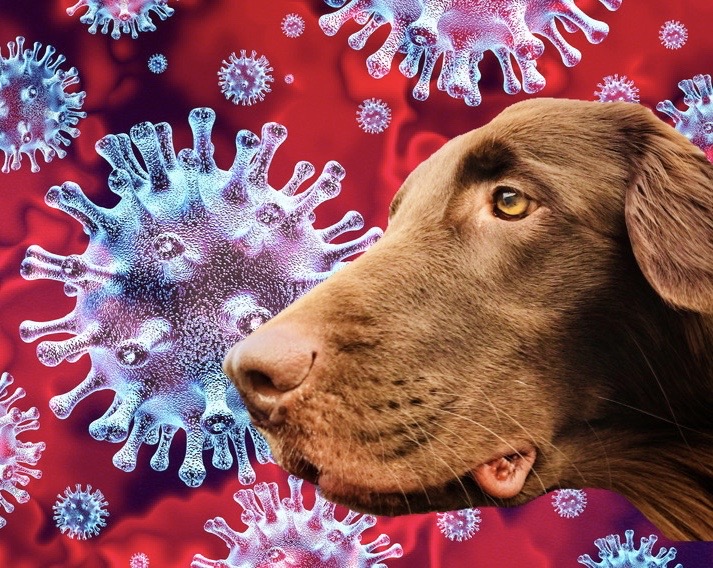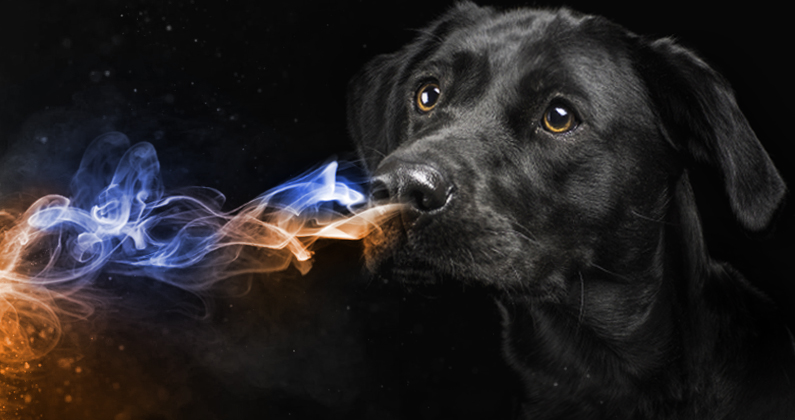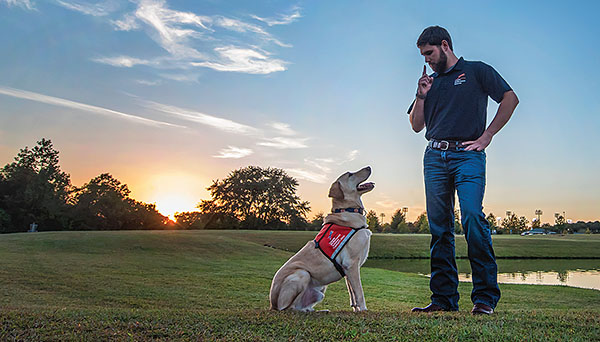
Dogs could help avoid epidemics, acts of bioterrorism, facilitate immediate therapy and reduce the number of swab tests in the lab. Scientists suggest that there are high probabilities of success but investment is needed.
Winning the battle against the Corona Virus has of course the highest priority. Man’s best friend could help us much more than we currently realise. We know already that so called “Doctor Dogs” are able to identify, with a very high degree of accuracy, an array of pathologies like: various types of cancer, malaria, diabetes, and ever early signs of Parkinson’s disease.
A 2015 study by the University of Auburn, College of Veterinary Medicine, Canine Performance Sciences has shown that dogs are able to identify in “real time” cells affected by viruses:

“We investigated the ability of two trained dogs to detect cell cultures infected with bovine viral diarrhoea virus (BVDV) and to discriminate BVDV-infected cell cultures from uninfected cell cultures and from cell cultures infected with bovine herpes virus 1 (BHV 1) and bovine parainfluenza virus 3 (BPIV 3). Dogs were trained to recognize cell cultures infected with two different biotypes of BVDV propagated in Madin–Darby bovine kidney cells using one of three culture media.”
The scientists led by Dr. Craig Angle and Dr. Paul Waggoner, showed that dogs have the capability and sensitivity to identify virus infected cells because of the VOC (Volatile Organic Compounds) produced: “Patterns of VOC expression may be pathogen specific and may be associated with an odor that could be used for disease detection.”
I asked Dr. Simon Gadbois of The Canid and Reptile Behaviour and Olfaction Lab Dept. of Psychology & Neuroscience at Dalhousie University in Halifax, Canada if it would be possible to teach sniffer dogs to detect Corona Virus carriers:

“We won’t know until we try. The problem here is that bacteria we know can be detected, but viruses are much smaller and/or relatively scentless as far as we know. Considering that the symptomatology of COVID-19 carriers is very similar to many different viral (and bacterial) infections, it is unclear that dogs could do this by targeting only Corona Virus carriers.
Accuracy is the average of sensitivity (which they may have) and specificity (what they would be likely lacking).”
Real-Time Detection of a Virus Using Detection Dogs
The Auburn study demonstrates that trained dogs can differentiate between infected cultured cells and are a realistic real-time mobile pathogen sensing technology for viral pathogens
Their highly sensitive olfactory capabilities are 1000 times more sensitive than current technology available to man. Furthermore dogs are mobile detection units and can move towards a target source.

I asked Dr. Craig Angle, Co-Director, Canine Performance Sciences Program:
How feasible it be would to train dogs to identify the Coronavirus?
“We have trained dogs to discriminate multiple viruses (and bacteria as well), that is, identify a target virus and discriminate it from other non-target viruses. We accomplished this in cell culture and have expanded our research to an animal model but we cannot comment on those results at this time.
It does take a special team of subject matter experts in virology, infectious disease, laboratory techniques, chemistry, canine training, and other to understand the target and to train the dogs.
It also takes a special high performance canine to accomplish the task of virus detection.
In one study we had 10 superior detection dogs and only five were able to maintain high rates of detection. So is it possible for dogs to detect the corona virus, they certainly have the capability; we just have to figure out the best way to approach the problem and design the detection task.
We have developed methods to capture and sterilize odours, so we can get over the hurdle of bio safety. So it is feasible, but it is a complex problem to solve. We also have to be sure that they will stay target specific to a certain strain and not generalize to other strains of corona virus.”

How long would it take to train a dog to do this and what would be the costs involved?
“If we have the right target (the complex part) for the dog to learn, they can learn it in a matter of weeks to months. Cost would be significant because of the front end R&D needed to launch the program. It would likely take approximately 500,000 US dollars to launch the program and conduct the feasibility studies.”
If we consider the amount of global wealth that has been wiped off the stock markets since the beginning of the Corona Virus pandemic, an investment such as the one needed by Dr. Angle and his colleagues is but a small drop in the ocean and in my opinion well overdue. Further study in dog’s detection response to particular pathogens will lead to knowledge transfer in the design of detection machines. Dr. Angle and his colleagues have researched methods to safely extract and sterilize odours from targets at the BSL2 level, to use for training the dogs. They have also developed methods to teach the dogs particular isolated target odours in cell culture and to detect and discriminate 3 different viruses and 8 different bacteria.
